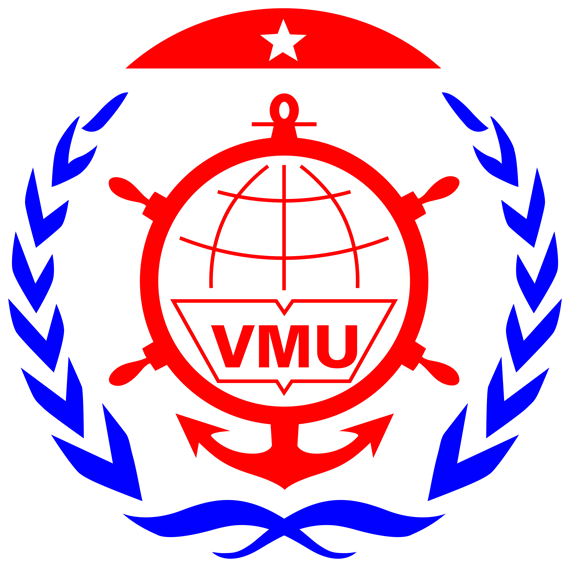1. Introduction
|
Program title: |
Bachelor of Environmental Engineering |
|
Graduation degree: |
Bachelor's degree |
|
Study model: |
Full-time |
|
Total credits: |
139 |
|
Used language: |
Vietnamese |
|
Training duration: |
4 years (8 semesters) |
|
Responsible Faculty: |
Institute of Environment |
|
Website: |
|
|
Address: |
Room 403, 4th floor A6 Building, Vietnam Maritime University 484 Lach Tray - Le Chan - Hai Phong |
The Environmental Engineering training program at Vietnam Maritime University, designed by the Institute of Environment, draws upon programs from various esteemed domestic and international universities. Regularly updated to align with industry needs and adhere to the Ministry of Education & Training and Vietnam Maritime University regulations, the program equips learners with essential knowledge, skills, and attitudes. It meets the Vietnamese National Qualifications Framework and international standards, preparing graduates to excel in the 21st-century workforce. Graduates of the program earn a bachelor's degree in Environmental Engineering, with the ability to design, implement, operate environmental pollution prevention and treatment techniques and deploy environmental management tools in accordance with legal regulations. They are dynamic, creative, and adaptable, ready to compete in the Asia-Pacific region and contribute to national development and international integration. Graduates are qualified for roles such as Officers at state management agencies on natural resources and environment, performing inspection and supervision of the implementation of legal regulations on environmental protection. Staff at laboratories, product quality control departments, units providing environmental quality monitoring and supervision services, environmental consulting, waste treatment enterprises or departments, Labor Safety and Environment Department (or equivalent Departments and Boards) at project management boards, production and service enterprises. Lecturers at universities, colleges, and vocational high schools in the field of training, participating in research and technology development in the field of environment and natural resources. Researchers at specialized organizations and research institutes. The program ensures that graduates are well-equipped to meet societal Environmental Engineering application needs and excel in their respective fields.
The Bachelor of Environmental Engineering program at Vietnam Maritime University offers a comprehensive education that prepares students for successful careers in the Environmental Engineering industry. With a focus on both theoretical knowledge and practical skills, graduates are well-equipped to meet the challenges of the modern technological landscape.
2. Curriculum
The Bachelor of The Bachelor of Environmental Engineering program at Vietnam Maritime University offers a comprehensive education that prepares students for successful careers in the Environmental Engineering industry program is organized into 8 semesters as follows:
Throughout eight semesters, students undertake a comprehensive curriculum that combines theoretical and practical learning. In Semester I, students gain foundational knowledge and skills through Calculus, General Physics which emphasizes problem-solving. Introduction to Environmental Engineering provides knowledge about the needs of society for the major of Environmental Engineering, problem solving skills in debate situations related to the field of environmental engineering, teamwork skills, design and implementation skills of an environmental protection task. General Law covers the importance of laws in daily life. General Chemistry provides an understanding of fundamental chemistry. Optional courses include Graphical drawing provides skills to read and understand technical drawings, Business administration equips business management skills and Soft Skills 1 to build communication and teamwork abilities.
Semester II broadens students' knowledge with subjects like Probability and Statistics, which develops data analysis skills. Physical chemistry-1, Inorganic chemistry -1, and Organic chemistry -1 focus on the fundamental areas of chemistry, while Basics of environmental science provides knowledge on environmental pollution issues and environmental management towards sustainable development. Environmental law and policy improves knowledge of legal policies related to environmental management and engineering. Optional courses include Basic English 1 for language enhancement; and Office Informative technology develops skills for working with documents and spreadsheets.
Semester III delves deeper into topics such as Environmental biology, Application of micro chemical biology in Environmental engineering, Environmental engineering chemistry, Hydraulic process, Analytical chemistry for refining foundational knowledge and skills. Optional courses include General English 2 for language enhancement further; Environmental toxicology, Energy vs Environment enhances the understanding of the environmental toxic agents and forms of energy in the environment.
Semester IV explores advanced subjects like General English 3 strengthens language skills, while Environmental Chemistry, Reactions proceeding technique, Cleaner production Environmental data help enhancement further about environmental chemcal enginerring and processes. Optional courses include Environmental protection in maritime sector, Environmental management system improve management of pollution in maritime and oceans.
In Semester V, students study Solid waste management, Mass transfer process, Environmental analysis, Natural resources management and sustainability, Advanced physiochemical and oxidation processes to enhance their understanding of fundamental knowledge and develop expertise in Chemical Engineering and Environmental Technology. Application of GIS in Environmental engineering, Environmental modelling are optional courses that help students master specialized skill and supplement their industry knowledge.
Semester VI focuses on specialized topics like the Hazardous waste control, Environment - Health - Safety, Air pollution control, Environmental monitoring, Wastewater treatment methods. The optional courses such as Specialized English in Environmental engineering, Creative startups, Soft skills 2 offer additional expertise and skill.
Semester VII emphasizes core specialized knowledge topics such as Environmental impact and risk assessment, Degradation and restoration of soil environment, Management of urban and industrial environment, Control and management of marine environment pollution, helping students develop professional competencies in the field of Environmental Engineering. Specialized internship helps students gain practical exposure to their field within enterprises. Optional courses as Environmental economics, Environmental audit, Tap water treatment methods, Management and operation of waste treatment works help students improvement advanced skill of environmental engineering and management.
In the final semester, students consolidate their learning through practical applications. The Graduation Internship immerses them in real-world challenges, and the Graduation Project showcases their ability to integrate and apply knowledge from previous semesters.
